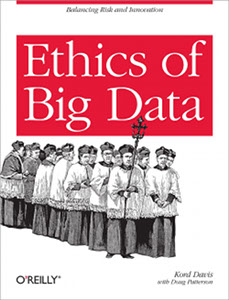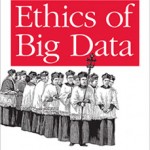Balancing Big Data issues
Posted by Elena del Valle on November 30, 2012

Ethics of Big Data book cover
Photos: O’Reilly Media
Big Data, the gathering of enormous sets of information on individuals, has become part of doing business. Retailers rely on it to offer products their customers have browsed or purchased in the past based on individual profiles and detailed information they keep on their customers activities on and offline in proprietary websites, social media sites and from other sources. In some cases retailers have developed the ability to guess a customer’s interests based on certain behaviors. This was the case earlier this year when it became known that a chain store was able to guess when a customer was likely to be pregnant causing a wave of controversy.
A recent The Washington Post article (Who are the doctors most trusted by doctors? Big data can tell you.) by Ki Mae Heussner explored what doctors think of their peers in a big picture way. According to that article, an activist is examining referral information gathered from government sources through a Freedom of Information Act request and creating a DocGraph designed to outline the relationships between physicians. The graph seeks to chart, relying on Big Data, how doctors interact with each other, refer patients and select doctors for themselves.
In Ethics of Big Data Balancing Risk and Innovation (O’Reilly Media, $19.99) Kord Davis and and Doug Patterson, ask readers about their organization’s policies for gathering and using huge datasets of personal information. In the 82-page softcover book the authors examine Big Data ethical questions and propose to readers that businesses should take into account issues of privacy and identity when making policy decisions about data gathering and storage.
They believe a company’s use of data can directly affect brand quality and revenue. As examples they point to Target, Apple, and Netflix. They suggest companies should align their behaviors with company values in order to preserve the trust of customers, partners, and stakeholders. The book is divided into four chapters: Big Data, Big Impact; Values and Actions; Current Practices; and Aligning Values and Actions
Davis, former principal consultant with Cap Gemini, has spent nearly 20 years providing business strategy, analysis, and technical consulting to 100 organizations including Autotask, Microsoft, Intel, Sisters of Mercy Healthcare, Nike, Bonneville Power Administration (BPA), Northwest Energy Alliance (NEEA), and Bill & Melinda Gates Foundation. Patterson has experience teaching business ethics and as a facilitator of conceptual topics.

Click to by Ethics of Big Data









